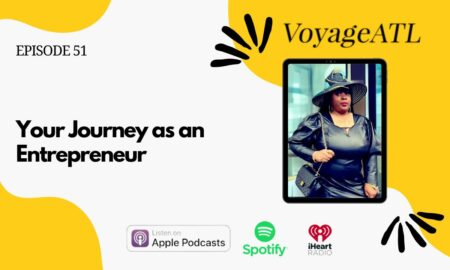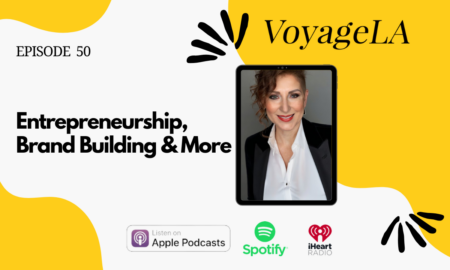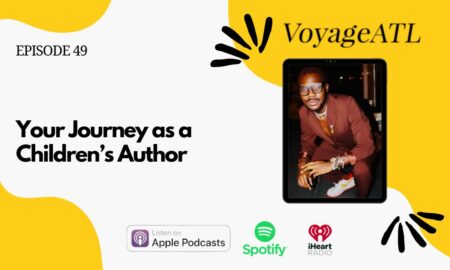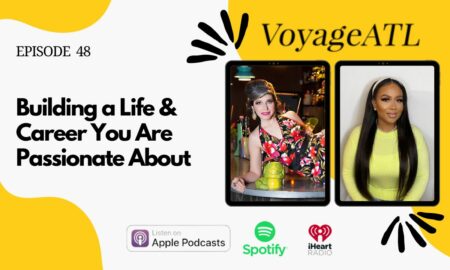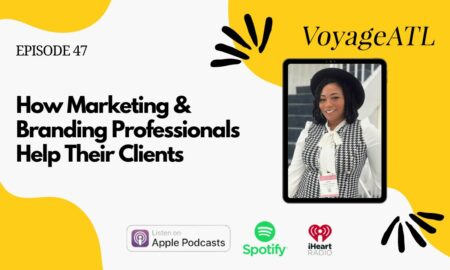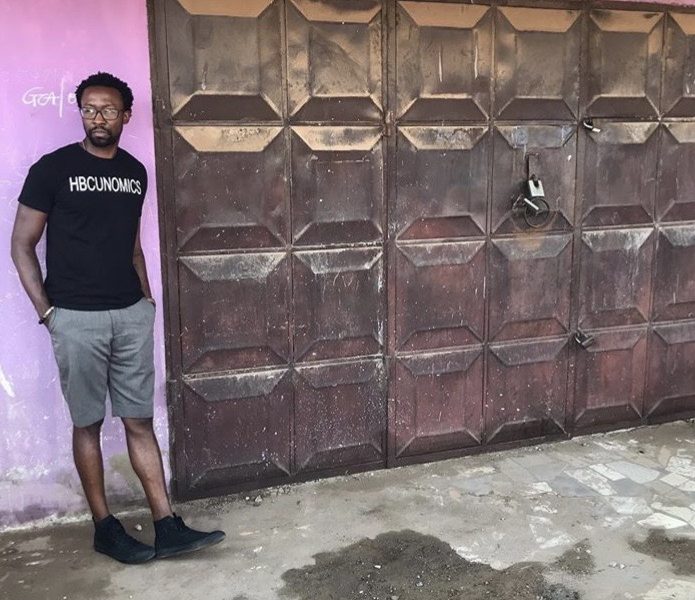

Today we’d like to introduce you to Jamerus Payton.
Jamerus, let’s start with your story. We’d love to hear how you got started and how the journey has been so far.
In 2001, I knew I wanted to change the trajectory of my family’s legacy and community through entrepreneurship, technology, innovation and service; with this objective in mind, I left Greenville, NC to attend North Carolina A&T State University. At that time, I was an 18 year old kid equipped with my “WHY” and nothing but pure ambition. I did not know “HOW” I would accomplish the things I set out to do, I just knew I would stay true to my word and help positively impact and influence my family and my community! In order to fully and truly understand my life’s mission and work, you have to understand where I am from. Today, Greenville, NC, a city estimated to have 90,000+ residents, has a poverty rate of 32%. To put it in perspective for you, the poverty rate across the state of North Carolina is 16.1%; as you can see, Greenville’s poverty rate is drastically higher – more than double – the poverty rate of the entire state of North Carolina. In 2018, the national poverty rate was 11.8%. What is even more alarming is that 36.4% of Black residents of Greenville, North Carolina live below the poverty line. The poverty rate of Black residents in Greenville, North Carolina is higher than the national average of 25.2%. Because Black people represent approximately 36.8% of Greenville’s total population, I believe I have a personal responsibility to help combat this issue by being a part of the solution for myself, others and my community!
I graduated from North Carolina A&T State University, in Fall 2006, with two Bachelor’s degrees from the School of Technology. Shortly thereafter, I moved to Dallas, TX to start my career as an Electrical Engineer for a major defense company. Finally, I was “rich”! I remember seeing my salary and thinking I had finally solved my money problems. Going to school, getting a degree and getting a good ass job was finally going to be just what I needed to change the trajectory of my family and my community. After all, I was a kid from poverty who, I thought at the time, had finally ‘made it’. I would use this money to pour back into my family and community! WRONG! I remember like it was yesterday, receiving my first check and seeing the amount of taxes and other deductions being taken out! I remember the frivolous spending. I remember somehow still needing to go to cash advance places, despite having a salaried position. It wasn’t until 2009, when I first enrolled in Southern Methodist University’s Cox School of Business, that I fully understood that being rich and being wealthy were two totally different mindsets and experiences. I remember my uncle recommending I read “Rich Dad, Poor Dad”. It was then that I realized that in order to accomplish my life’s mission, I would need to change a lot of stuff about myself and how I viewed money. I started my first companies shortly after reading this book. Then, a friend of mine from Morehouse College recommended I read “Why Should White Guys Have All The Fun?” by HBCU legend and billionaire, Reginald F. Lewis and “The Miseducation of The Negro” by Carter G. Woodson. The last piece of the puzzle to helping me figure out the “HOW” was meeting my mentor, Wendell. He taught me the importance of servant leadership and how to use its influence and impact those in need. He instilled in me that servant leaders make the best change agents and that you will find your true purpose once you commit to serving others. It was at age 26 when it finally clicked that I was equipped now with more than just my ambition. I was now ready to use my two Bachelor’s degrees from an HBCU, a Master’s degree from a top business school, my engineering and entrepreneurial mindset, and my knowledge of self, financial education and leadership training to push my family, community and culture forward through entrepreneurship, technology, innovation and service.
We’re always bombarded by how great it is to pursue your passion, etc. – but we’ve spoken with enough people to know that it’s not always easy. Overall, would you say things have been easy for you?
The road has not always been smooth sailing; I’ve definitely experienced some bumps along the way. Like most ambitious change agents and entrepreneurs, I wanted to save everyone. I wanted to do everything and be everything to everyone. I wasted a lot of time, energy, genius, opportunities and, of course, money. It wasn’t until I decided to focus on economic empowerment, financial education, and financial independence within the HBCU community that things started to click, and I started seeing real traction. Over time, I realized there’s no need to always reinvent the wheel. Sometimes, you just have to take something that has already been proven and present it to a new demographic in an innovative way.
So let’s switch gears a bit and go into the HBCU Wall Street story. Tell us more about the business.
In 2015, along with Torrence Reed, I created an Instagram page to highlight the business accomplishments and success stories of people who graduated from HBCUs. We shed a spotlight on individuals such as Reginald F. Lewis, Celeste Beatty, Oprah, Kwame Nkrumah, Janice Bryant Howroyd, Earl Graves, Sr., Thomas Dortch, Rosalind Brewer, Dr. Jalaal Hayes, etc. Our goal was to use these stories to inspire the next generation of HBCU graduates, leaders, entrepreneurs, and business professionals.
Secondly, using GroupMe, we wanted to address the financial and economic inequalities in America, particularly those affecting the Black community. Money is something that, oftentimes, is not discussed in many Black households, whether it be because of guilt, lack of knowledge, poor money experiences, and/or lack of time. In efforts to both acknowledge and address this problem, we created a platform to at least start conversations that would contribute to the mental paradigm shift amongst HBCU stakeholders.
Finally, we aspired to equip our community with not only information that would shift their mental paradigm, but we also wanted to provide them with tangible financial solutions. With this in mind, we created HBCU Realty and HBCU Movers. The purpose of HBCU Realty is to revitalize HBCU host communities through social real estate investing. With HBCU Movers, we provide a solution to HBCU students moving into and out of apartments, while at the same time, providing employment opportunities for HBCU students who make easy money by helping us make the moves.
Since our modest beginnings of being an Instagram page and a GroupMe, we now have a digital reach of over 100,000 people. We have visited more than 25 schools, colleges and universities. We have also assisted countless students, alumni, and even faculty, with increasing their cash flow and net worth to acquire assets. Our consistent work in the HBCU community has grown the brand into a respectable, award-winning national company using digital content, webinars, campus tours, workshops and a podcast.
Has luck played a meaningful role in your life and business?
As I think about this question, I can’t help but to think of the quote, “Luck is what happens when preparation meets opportunity.” A lot of doors and opportunities have been presented to me simply because I was fortunate and privileged enough to be in the right rooms, with the right people, with the right knowledge, at the right times. This is all because I learned early on to embrace all of my past environments and experiences. Had I not grown up in poverty in Greenville, I would not have cared enough to help others in my family and in my community become “financially woke”. Had I not gone to North Carolina A&T State University, I would not have appreciated all things HBCU: the legacy, culture, heritage, history, and the impact that HBCUs continue to have on the Black middle class and economy. Had I taken my first job some place besides Dallas, I would not have been able to tap into my “genius” of problem-solving, business and entrepreneurship. Had I not read “Rich Dad, Poor Dad,” I would not have been equipped with the mindset and tools I needed to “financially awaken” my family and community. Had I not met my mentor, I would not have been able to understand the importance of leading people and the community through serving their needs. “Luck”, foolish ambition, and knowledge of self have all played major roles in both life and in business.
Pricing:
- Dream Big. Dream Often. Dream Unrealistic: Guidelines to Get off The Sidelines eBook – $5.99
- HBCU Realty (Investing Focused Community) – $9.99
- CashBook: A Step-by-Step Guide to Increasing Your Cash Flow – $12.99
- HBCUNomics: A Story of the Power of Black College Students, Economic Self-Sufficiency and Financial Freedom – $14.99
- HBCU Wall Street Apparel – $20
Contact Info:
- Website: www.hbcuwallstreet.com
- Email: info@hbcwallstreet.com









Suggest a story: VoyageATL is built on recommendations from the community; it’s how we uncover hidden gems, so if you or someone you know deserves recognition please let us know here.















